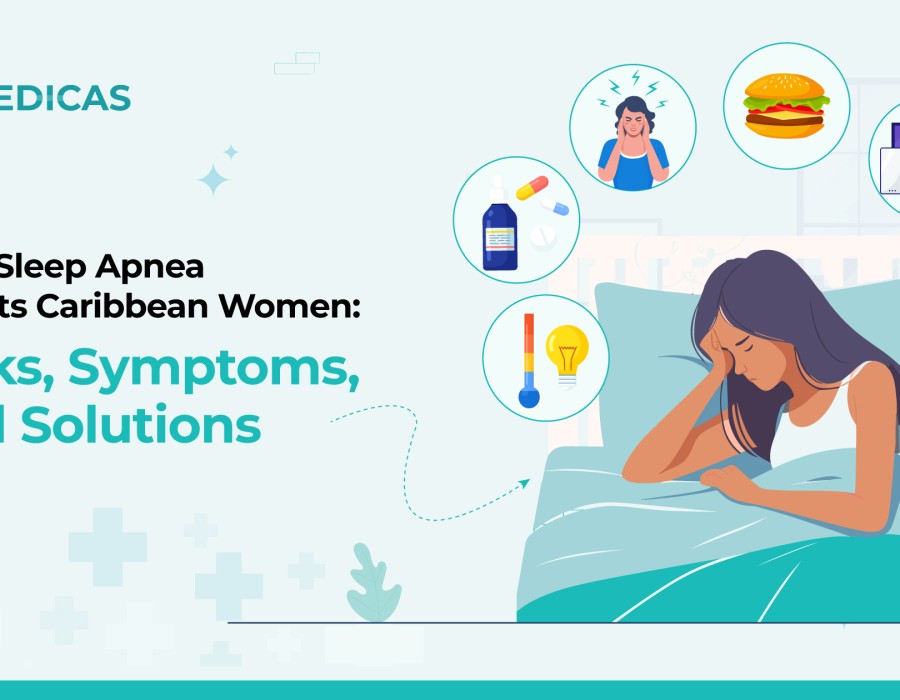Sleep apnea is a serious but often underdiagnosed condition that affects millions worldwide — and Caribbean women are no exception. In the Caribbean, where a fast-paced lifestyle and cultural habits often downplay the importance of rest, many women unknowingly struggle with sleep apnea and its silent impact on their health.
Unlike men, who usually show classic symptoms such as loud snoring or gasping for air during sleep, women often experience subtler signs like fatigue, headaches, mood swings, and brain fog. These symptoms are frequently mistaken for stress, anxiety, or hormonal imbalance, leading to delays in proper diagnosis and treatment.
Hormonal changes, particularly during menopause or conditions like PCOS, can also increase the risk of sleep apnea in women. Lower estrogen levels can weaken airway muscles, making breathing interruptions more frequent during sleep. Lifestyle factors such as diet, lack of exercise, and genetics further contribute to the condition’s prevalence among Caribbean women.
Treatment for sleep apnea can include continuous positive airway pressure (CPAP) therapy, oral appliances, and lifestyle changes such as maintaining a healthy weight and avoiding alcohol or sedatives before bed. Addressing these factors not only improves sleep but also reduces the risk of chronic illnesses like heart disease, stroke, and diabetes.
Raising awareness and breaking the stigma around sleep health is essential. Caribbean women should prioritize regular sleep assessments and seek medical advice if they notice persistent fatigue or poor sleep quality.





Comments